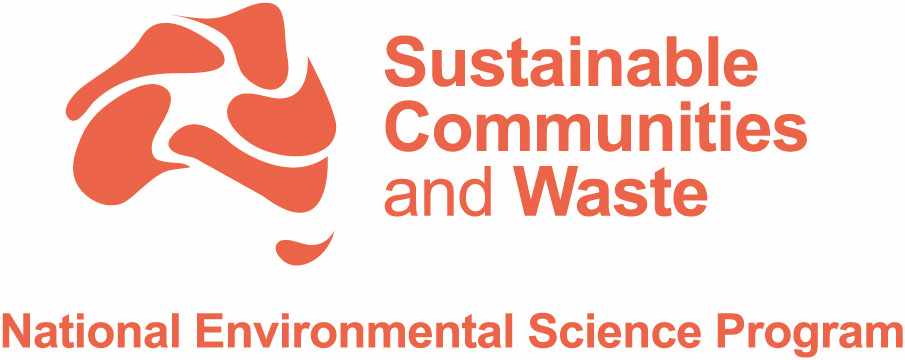On 5 February 2025, the Sustainable Communities and Waste (SCaW) Hub hosted its latest Hub Day event at UNSW Sydney and online. This gathering brought together nearly 40 researchers and several stakeholder representatives including Planet Ark, Tyre Stewardship Australia and Agency Projects.
The event explored pathways to impact for our science and highlighted the progress the Hub has made in its goal of advancing sustainability through applied science.
A Day Focused on Impact
The theme, "Different Pathways to Impact," emphasised the Hub’s commitment to translating research into real-world change. From showcasing research outcomes to discussing innovative solutions and strengthening collaborations, the event provided a platform to reflect on what has been achieved and where we go next.
Key Highlights
The event was MC’d by Leila Gurruwiwi, a proud Yolŋu woman, cultural liaison and public programs lead. She is a media personality, a cultural ambassador and a knowledgeable mentor. Leila works to raise awareness, embrace cultural heritage and fight for a more inclusive and united society.
Ms Gurruwiwi began the event by inviting Dr Peter McKenzie to give a Welcome to Country. Dr McKenzie is from the historic La Perouse Aboriginal community in Sydney and is an artist, an international Aboriginal ambassador and a former Fulbright Scholar.
This was followed by remarks from Professor Marc Wilkins, Deputy Dean of Research & Enterprise at UNSW Science. He congratulated the Hub’s practitioners and researchers on producing impactful work and encouraged further collaboration.
The Hub Steering Committee Chair, Michael Sharpe, then introduced the day's theme. He underscored the importance of moving from research to implementation and ensuring the Hub’s work continues to drive meaningful impact, which is already being seen by communities, industry and government.
Discussing pathways to a sustainable future
Three engaging panel discussions delved into different aspects of sustainability and waste management:
Safe Circularity
Experts explored how materials can be safely and effectively reintroduced into the economy, discussing opportunities in circular design and policy support.
Linda Mitchell, Research and Innovation Manager at Tyre Stewardship Australia and Hub collaborator, was on the panel and said there are many opportunities to learn from international examples and apply them to an Australian context. This type of research can be used instead of enforcing blanket bans for materials, which could have unintended consequences.
Panelist Greg Davis, CSIRO Chief Research Scientist and IP3 co-lead, said effective collaboration involves conversations with scientists, industry, regulators and communities to ensure all groups have a shared understanding.
Sustainable Communities
This session highlighted the importance of community engagement and participatory approaches in sustainability initiatives. Panelists shared case studies and innovative examples of translating science for local impact.
Panelist Heinz Schandl, CSIRO Senior Science Leader and IP5 co-lead, highlighted that community collaboration is not something that happens spontaneously and it must be carefully created, have a shared vision and provide benefits for everyone involved.
Bridget Jupe from Tasmania’s Kingborough Council who works closely with the IP1 project also took part in the panel. She said communicating the physiological benefits of connecting with nature gained from Hub research has increased community well-being through strategic nature connection activities hosted by the council.
Value Creation and Remanufacturing
The discussion centred on how repurposing and reusing materials can unlock economic and environmental benefits, with insights from leaders in research, communication and council.
Leila Gurruwiwi and Kade McDonald from Agency Projects were on the panel and shared experiences from the Rubbish on the Shore think tank event in Arnhem Land in 2024, to which IP2 provided material science expertise. Both panellists spoke about the circular and sustainable nature of Indigenous practices. They mentioned the need to support efforts for Arnhem Land communities to manage ghost nets that are washing ashore there from the rest of the world. Both panelists highlighted local solutions that are underway such as basket weaving from these materials.
Panelist Peter Windley, Project Manager of Waste Services at Shoalhaven City Council, said his council’s success in diverting resources from landfills was due to identifying opportunities, backed by science and collaboration. This has allowed his organisation to change community views on waste to see it as valuable material that can be returned to a circular economy.
Looking Ahead: Collaboration for Greater Impact
In his closing remarks, Michael Sharpe reflected on the importance of collaboration and the need to translate research into tangible actions. He encouraged attendees to continue working together to overcome challenges and create lasting impact.
As the Hub continues towards its goal of supporting a more sustainable future for Australia, the insights and discussions from the event will inform future strategies. This ensures our research continues to drive real-world change. Thank you to all who participated – we look forward to building on this momentum together.


